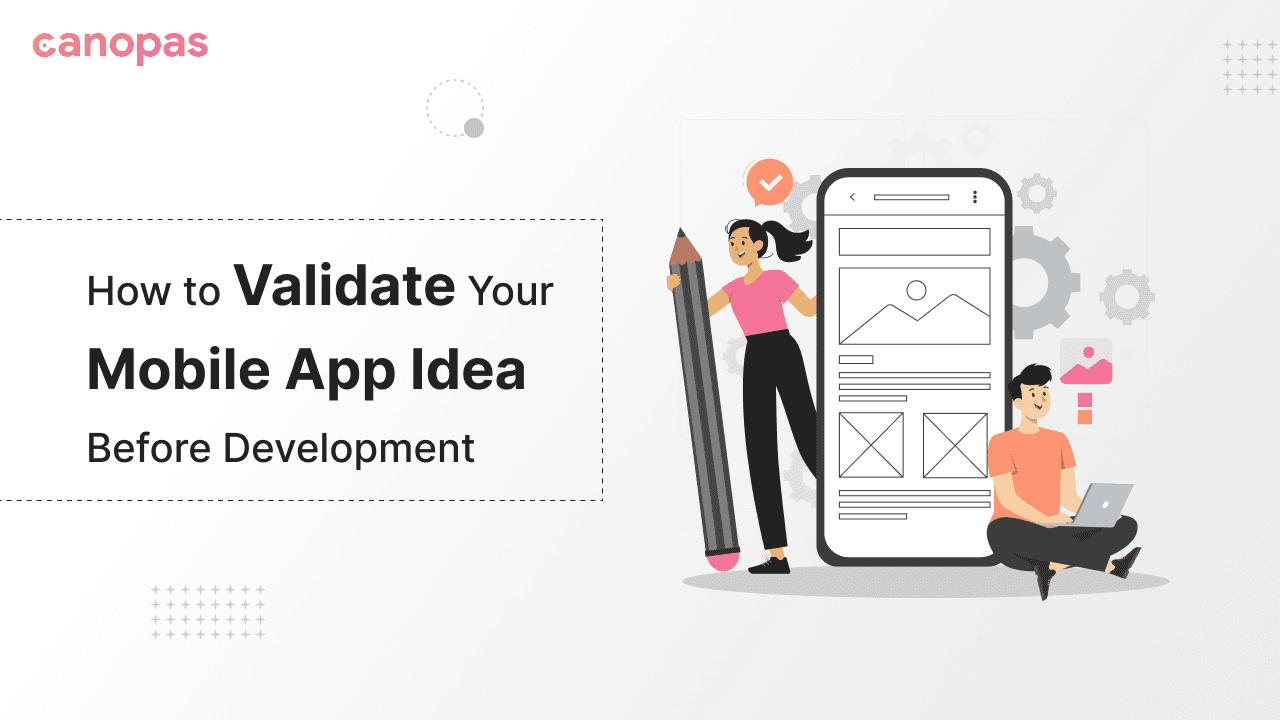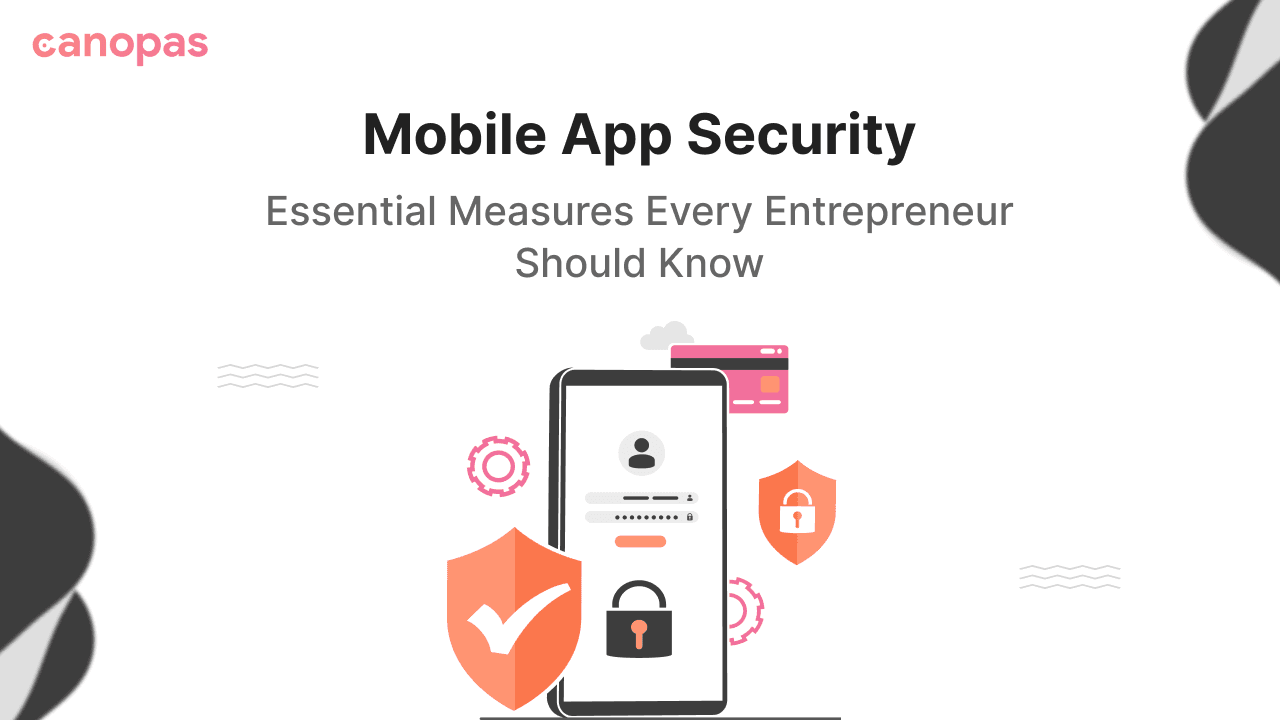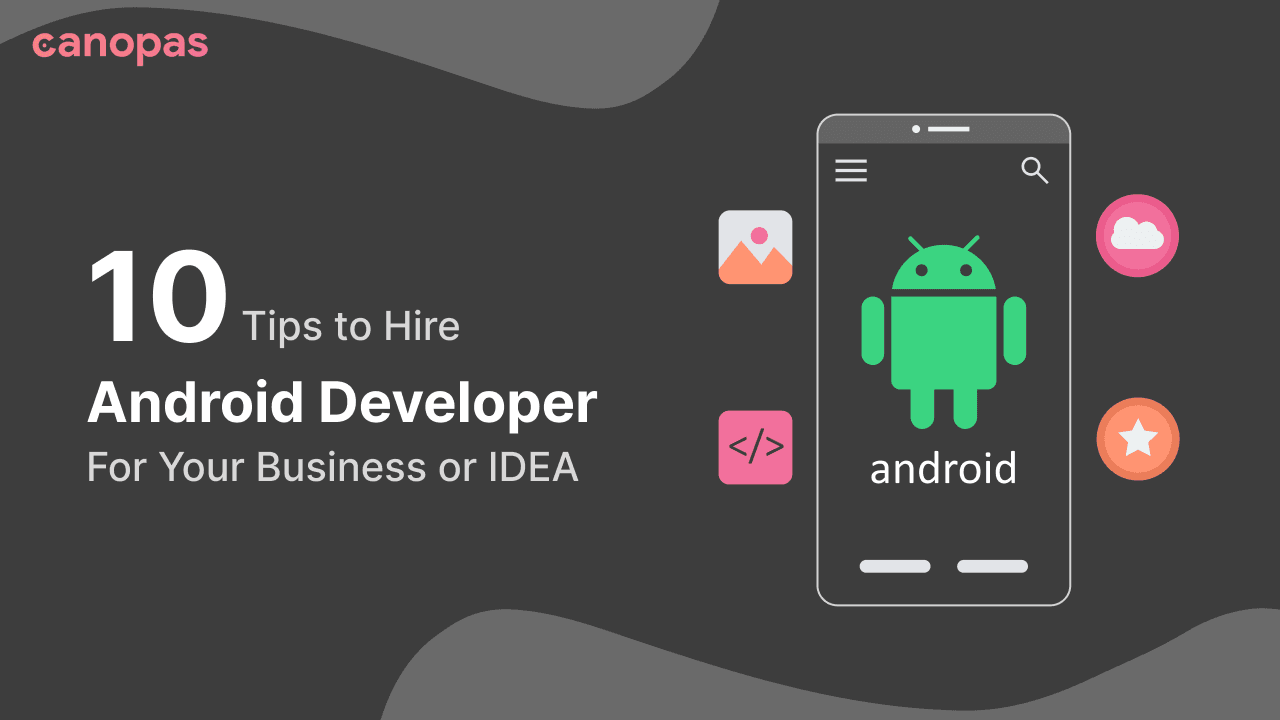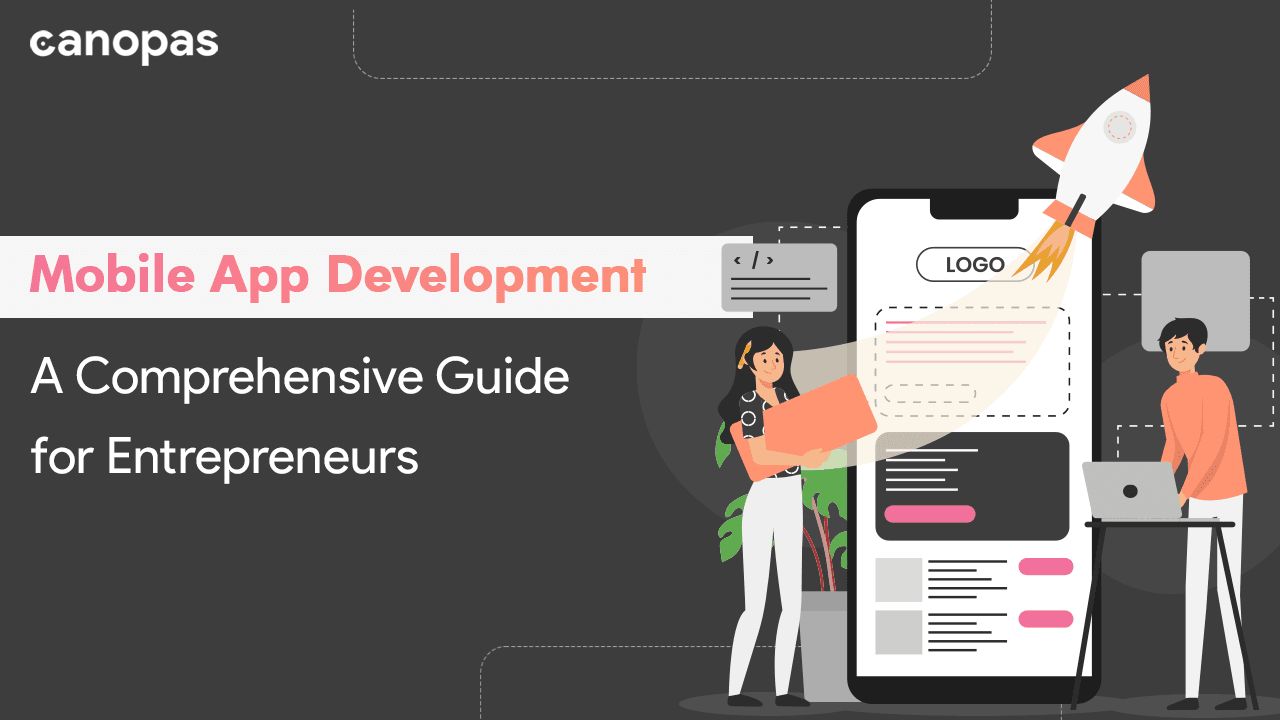
How to Validate Your Mobile App Idea Before Development
How to Validate Your Mobile App Idea - Introduction
Imagine You've just thought of a brilliant mobile app idea. You're buzzing with excitement, imagining its potential success.
But wait!
Before you dive into development, spend sleepless nights refining designs, and invest a significant chunk of your budget, there's a crucial step to consider: validation.
Is your idea truly as groundbreaking as you believe?
Will users embrace it with the same enthusiasm you have?
Validating your mobile app idea isn't just a safety net—it's the bedrock of building something users will love and recommend.
This guide is your personal roadmap, walking you, the ambitious entrepreneur, through the vital steps to ensure your app isn’t just a fleeting whim but a market-fit gem.
Buckle up and let's begin!
Understanding Your Target Audience
Did you ever hear the saying, “You can't be everything to everyone”?
It rings especially true in the app world. Knowing exactly who you're building for can be the difference between a blockbuster hit and a flop.
Here are some steps you can follow to know your target audience.
Creating User Personas
Imagine a handful of individuals who epitomize your ideal user. What are their habits, preferences, and pain points? Sketching out these details will give you a crystal-clear idea of who you're serving.
Dive into Demographics
Beyond just age and location, think about their lifestyle, spending habits, and tech-savviness. This info will be pivotal when you tailor your app's features and marketing strategies.
Engage Directly
Here's a radical idea - just talk to them! Conduct surveys, hop onto forums, or even have one-on-one interviews. The insights you gain from these genuine interactions can be gold.
Analyze Competitors’ Users
Look at reviews and feedback on similar apps. What are their users raving or ranting about? This can give you an edge, positioning your app to cater to these needs better.
By truly understanding your audience, you're not just shooting in the dark; you're aiming for the bullseye with laser precision. After all, the most successful apps are the ones that resonate deeply with their users.
Conducting Competitive Analysis
Alright, savvy entrepreneur, imagine stepping into a room filled with all the creators of apps similar to your idea.
Daunting, right?
But here's the thing: they've done some of the heavy lifting for you. Let's use their lessons to our advantage.
List Your Potential Rivals
Start by jotting down apps that serve a similar purpose as yours. Even if they aren’t identical, they'll offer insights into market dynamics and user preferences.
Features and Functionality
Dive deep into their features. What stands out? What's lacking? This will help you carve a niche for your app and ensure it’s not just another face in the crowd.
User Reviews Are Pure Gold
Head over to app stores and check out user feedback. Praises highlight industry standards, while criticisms reveal gaps you can capitalize on.
Monetization Methods
Observe how these apps are making money. In-app purchases? Ads? Subscription models? This will give you ideas on sustainable revenue models for your app.
Frequent Updates and Support
Check how often competitors update their apps. This can clue you in on their adaptability and dedication to user experience.
Embarking on this espionage mission doesn’t mean copying others. Instead, it’s about understanding the landscape, finding your unique space, and ensuring your app doesn’t just meet but exceeds user expectations.
Proof of Concept vs. Minimum Viable Product (MVP)
Before you pour your heart, soul, and resources into the full-blown app, let's talk about testing the waters.
Two key strategies can help: the Proof of Concept (PoC) and the Minimum Viable Product (MVP).
But which one's for you?
Let's break it down.
Proof of Concept (PoC)
- What is it? Think of PoC as your hypothesis test. It’s a prototype that validates whether your app idea is technically feasible.
- When to use it? If you've got a ground-breaking idea that hinges on a specific technology or approach, PoC helps you test the waters without building the entire ship.
- Advantages: It's quicker, often cheaper, and gives a clear answer: Can this be done?
Minimum Viable Product (MVP)
- What is it? MVP is your idea stripped down to its core functionality. It’s a working model of your app, sans the bells and whistles.
- When to use it? When you're confident about the feasibility but want to see how your target audience reacts to the core idea.
- Advantages: MVP lets you gather real user feedback, understand market demand, and even attract potential investors. Plus, it saves you from investing too heavily in features users might not want.
In a nutshell, PoC helps answer, "Can I build this?", while MVP addresses, "Do they want this?".
By choosing wisely between them, you're not just shooting in the dark—you're making every shot count.
Leveraging Feedback Early On
Let’s talk about one of the most invaluable treasures you can gather in your app journey: feedback. But not just any feedback—the right kind, and at the right time.
Why Early Feedback Matters
Imagine walking a mile in the wrong direction only to realize you took a wrong turn right at the start. That’s what skipping early feedback feels like in app development. It ensures your vision aligns with what users truly want.
Where to Source Feedback
- Surveys and Questionnaires: Quick, easy, and versatile. Platforms like SurveyMonkey or Google Forms can be your best friends here.
- Focus Groups: Handpick individuals representing your target audience. Their in-depth discussions can unveil gold.
- Beta Testers: Before the grand launch, have a soft launch with a select group. Their hands-on experience can provide invaluable insights.
Acting on the Feedback
- Prioritize: Not all feedback will align with your vision or be feasible. Filter and prioritize what aligns best with your goals.
- Iterate: Implement the feedback, refine your app, and test again. This loop will inch you closer to perfection.
- Communicate: Always acknowledge the feedback. Let your early testers know their voices matter and inform them of the changes you've made based on their input.
Remember, every piece of feedback is a sign that someone cares enough about your idea to give it thought. Embrace it, act on it, and watch your app idea mature into a solution that truly resonates.
Validating the Market Demand
Let's find out if there are people who are looking for what you're planning to build for them.
Why Market Validation is a Game-Changer
Picture this: you've poured time, energy, and resources into your app, only to find out there's no real demand. Heartbreaking, right? Validating demand early saves you from this heartache and redirects your energy where it's genuinely needed.
Methods to Test the Waters
- Landing Pages: Create a teaser landing page for your app with a sign-up option. High interest? You’re onto something!
- Google Trends and Keyword Planner: Understand search volumes. Are people searching for solutions your app can provide?
- Crowdfunding Campaigns: Platforms like Kickstarter can not only gauge interest but can also provide initial funding if there's genuine excitement.
Interpreting the Data
- Quantitative Data: Numbers, charts, and graphs. They paint a clear picture of demand in volume but remember to consider the quality too.
- Qualitative Data: This is all about the 'why.' Dive deep into comments, reviews, and discussions to understand user motivations.
- Synthesize: Bring both types of data together. They're two halves of a complete story.
Finally, my ambitious friend, while numbers don’t lie, always leave room for intuition. Sometimes, the market doesn't know it needs something until it sees it. Blend hard data with your visionary spirit, and you'll find the sweet spot of market validation.
Financial Considerations
Alright, let’s talk numbers! You're not just building an app; you're building a business. And that means keeping a keen eye on the financial side of things, ensuring you’re not diving into the deep end without a lifejacket.
Initial Costs
- Development: Building the actual product. This can range based on complexity, features, and platforms.
- Design & UI/UX: A stellar user experience is non-negotiable. Understand the costs of creating a polished look and intuitive interface.
- Licensing and Legal Fees: This includes everything from software licenses to potential patenting or intellectual property rights.
Operational Costs
- Maintenance: Just like a car, your app will need regular tune-ups to run smoothly.
- Updates: As technology or user preferences evolve, so should your app.
- Hosting and Servers: This is the digital real estate where your app lives. Choose wisely and understand the costs.
Marketing and Promotion
Even the most innovative apps need a push. Consider costs for ads, influencer partnerships, or other promotional tactics.
Monetization Strategies
- Paid Downloads: Charging users a one-time fee to download.
- In-app Purchases: Offering premium features or content for a price.
- Subscription Models: Charging users on a regular basis for continued access.
- Ads: Generating revenue from advertisers.
Contingency Budget
Because unexpected costs will arise. Trust me. It's always wise to have a buffer.
To wrap up this section, always remember, dear entrepreneur: while starting lean is commendable, skimping on essential investments can cost more in the long run.
Financial wisdom is about balance: spend where it counts, save where you can, and always, always plan ahead.
Technical Feasibility
Before you let your dreams fly too high, it's essential to ground them in the realm of what's technically possible.
Having a fantastic idea is one thing, but ensuring it can technically come to life in the way you imagine? That's the game-changer. Here are things you should consider for tech feasibility.
Technological Limitations
Understanding current technology is pivotal. Is what you're envisioning possible with the tools and tech stacks available today? Or are you thinking so far ahead that the tech hasn’t caught up yet?
Platform Considerations
iOS, Android, or cross-platform? Each has its pros, cons, and specific technical requirements. Understand where your audience is and what platform aligns with your vision.
Integration with Existing Systems
Will your app need to pull data from other software or platforms? Ensuring seamless integration can be a complex task, but it's often essential for functionality.
Resource Availability
Do you have access to the right developers and technical experts? Unique features might require specialized skills.
Testing Environments
Before your app goes live, it needs a rigorous testing environment. This will ensure it works seamlessly, is bug-free, and offers a smooth user experience.
Data Storage and Security
Where will your app's data be stored, and how will you ensure it's secure? With increasing concerns about privacy and data breaches, this is a non-negotiable.
Scalability
Sure, your app might work with a few hundred users. But what about a few thousand? Or million? Planning for success means ensuring your tech can handle growth without hiccups.
To sum up, while the sky's the limit when dreaming, it's crucial to ensure your app idea is technically feasible. By addressing these considerations, you're not just dreaming big - you're building smart.
Building a Prototype
By now, you're well-armed with insights, validation, and a dose of technical reality. But before you go full-throttle into development, there's a step that can save you time, money, and heartache: building a prototype.
Why a Prototype?
Think of a prototype as your idea's first tangible form. It’s a visual and interactive representation of your app, letting you see its flow, functionality, and design without all the backend complexity.
Types of Prototypes
- Paper Prototypes: Yes, in our digital age, sketching your app on paper is a real thing! It's quick, allows for immediate feedback, and is an excellent tool for brainstorming.
- Digital Prototypes: Tools like Figma, Adobe XD, or Sketch can bring your app to life digitally, letting you click around and feel the user experience.
Getting Feedback
Share your prototype with potential users, stakeholders, or team members. Their hands-on feedback can spotlight areas of friction, confusion, or pure genius.
Iterate and Refine
Your first prototype won't be perfect, and that's okay. Use the feedback to iterate, refining your design and improving the user journey.
Cost Efficiency
Mistakes are much cheaper to fix on a prototype than in a fully-developed app. Catching design flaws or functionality issues early can save significant resources.
Setting the Stage for Development
When you’re satisfied with your prototype, it acts as a blueprint for developers. They'll have a clearer vision, reducing misunderstandings and streamlining the development process.
In essence, dear innovator, a prototype is your app's first test in the real world. It bridges the gap between idea and execution, ensuring you're on the right track. So, before diving deep into development waters, float your prototype boat first.
Iterate Based on Feedback
So, you’ve built your prototype and showcased it to a select group. Great move! But now comes a phase just as critical: iterating based on the feedback you receive. Here’s why and how.
The Value of Iteration
Remember, your app idea isn’t set in stone. It’s a living, breathing concept that needs to evolve based on real-world input. Think of feedback as the wind adjusting the sails of your ship, ensuring you’re on the right course.
Gathering Diverse Feedback
Collect insights not just from potential users, but also from team members, stakeholders, and even competitors. Each perspective offers a unique angle that can enrich your app's value proposition.
Prioritizing Feedback
Not all feedback is created equal. Some will be crucial, while some might steer you off track. Prioritize based on what aligns with your app’s core objectives and what enhances the user experience.
Refinement Over Revolution
It might be tempting to overhaul everything based on feedback but resist the urge. Small, targeted tweaks can sometimes be more effective than grand, sweeping changes.
Document Everything
As you iterate, document all changes and the reasons behind them. This living document will serve as a roadmap for your development journey, helping you understand past decisions and guiding future ones.
Stay True to Your Vision
While iterating, ensure you don't drift too far from your original vision. Feedback is invaluable, but your core idea is the heart of your app. Nourish it, refine it, but don't lose it.
As you forge ahead, dear entrepreneur, remember: iteration is growth. Embrace the insights, make the necessary tweaks, and watch as your app idea transforms into a solution poised for success in the market.
Taking the Next Leap in Your App Journey With Canopas
The journey of app development is as exhilarating as it is intricate. By now, you've garnered an understanding of the meticulous steps involved in validating an app idea.
But remember, knowledge without action is like a ship without a sail.
The digital realm awaits your innovation. Don't let the fear of the unknown hold you back.
Take your validated idea, backed by research, feedback, and iteration, and turn it into a tangible solution.
If you feel you need a seasoned partner to guide you through the development maze, look no further.
Connect with our expert team today and let’s breathe life into that app idea of yours. Together, let’s chart a course to tech success!







